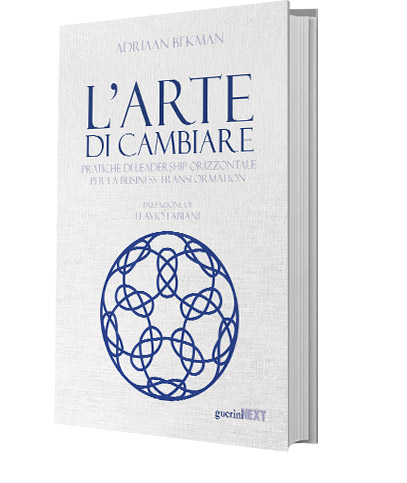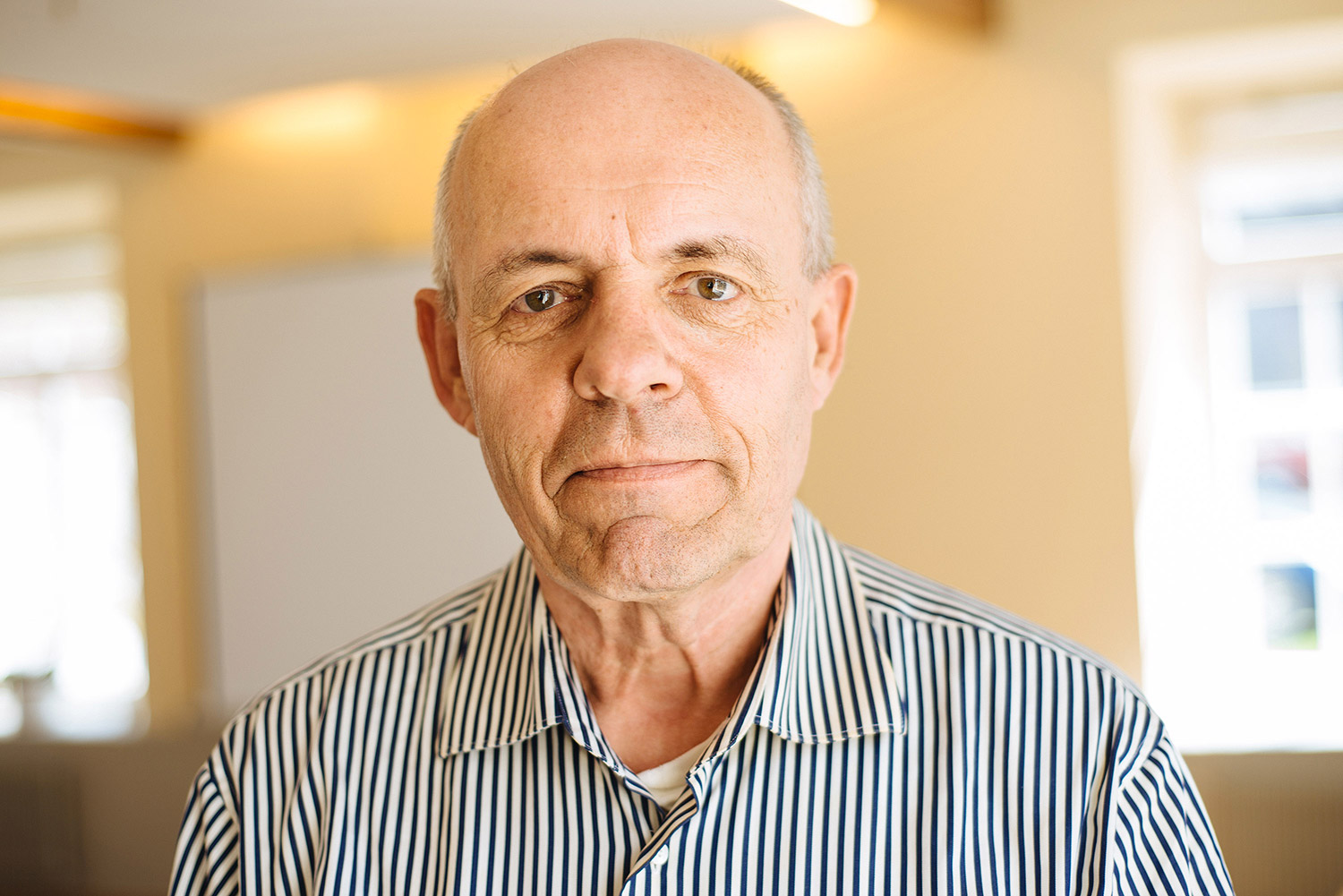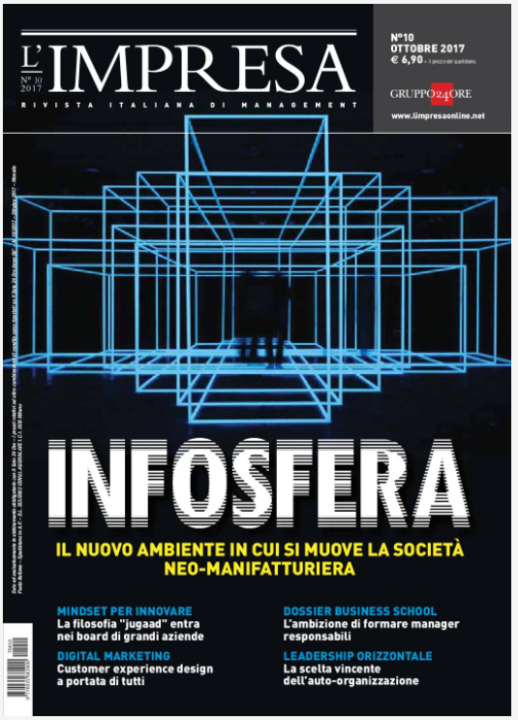
L’Arte di Cambiare – pratiche di leadership orizzontale
There is a gap between management and employees in most organizations that needs to be bridged. It is from this fundamental assumption that the horizontal leadership practices for business transformation by Adriaan Bekman are born and developed. “L’impresa” met him in Milan during one of his famous workshops, aimed at the Italian business community.
Founder and director of Imo, the Institute for Human and Organizational Development based in the Netherlands and a worldwide network, Bekman has been working for years on organizational development and diffuse leadership concepts. For the first time, his most recent book L’arte di cambiare, with a preface by Flavio Fabiani from Peoplerise (Guerini Next, 2017), has just been released in Italy.
A new era for family businesses
«The change that I speak of must move from a vertical organization to a much more horizontal organization in which every employee is given freedom of movement, space for decision-making, and individual responsibility», Bekman posits. To do this, the author proposes to focus on process, biography and dialogue: the key principles around which to revolve the relationship and relationships. “The knowledge of the developed social processes is useful when we design complex processes of change, learning, working, cooperating, and attributing meaning to the work of people in organizations,” Bekman writes.
«Coinciding with the opening of the first international master’s program on horizontal leadership proposed by Imo Italia in collaboration with the Imo network, it seemed quite natural to carry out the translation of Adriaan’s book in Italian as well. There are no notable differences in the world of Italian organizations, the only peculiarity is the strong presence of family businesses with solid, yet rigid structures, explains Fabiani. In this type of organization, in particular, the second and third generations are looking for new and different models of leadership with an evolutionary but integrated approach».

How to generate the change
Imo has a working group in Italy as well, set up and led by Erica Rizziato: «It is a horizontal structure, an institute to push an impulse of development of entrepreneurship also in our country. It is organized by “developers”, who have already introduced horizontal leadership formulas in organizational contexts. The methodology on which I will publish an organic paper in the upcoming months deals with how to generate change through a new vision, within which organizations and people co-regenerate each other. This implies horizontal spaces of dialogue, activation of specific responsibilities, daily practices with respect to the vision of the customer that is at the center of the development dialogue».
Rizziato highlights the experimental trait of activating these changes. Creating horizontality is in fact only possible if it actually brings added value, participation and, fundamentally, economic utility. «In order to motivate people, it is first necessary to involve them, connecting the community. The lean organization is built through the work of experts, here instead people are activated within the organization, to ask them for an individual contribution. But beware, this is not democratic leadership, meaning that the processes are still guided». Bekman’s vision is in some ways even more revolutionary: «There needs to be a discontinuity with the traditional view of leadership: the boss and the others. Everyone can be a leader of a project, an idea, a process. In this regard, new individual spaces are needed to train creativity, and employees must be made responsible and focused on objectives. The old vertical methods have proven, after all, that they do not work».

The interest of Italian companies
In all sectors and at all levels, the watchword is “creating communities” where widespread leadership processes are shared in which each person can dialogue with another regardless of vertical and hierarchical settings. «It may be that the Netherlands is, in some ways, a particularly interesting laboratory in this sense, but also in Italy the same principles can find fertile ground in many organizations. The dynamics may be a bit slower for cultural reasons and sedimented habits but, especially among young entrepreneurs, I have had the opportunity to meet several willing and interested in approaching this type of approach, in every part of Italy, from Lombardy to Sicily». In fact, Italy is one of the eight countries, together with Holland, Germany, Brazil, Finland, Russia, Israel and Switzerland, in the Imo network, a permanent center for diffuse leadership practices. Therefore, Bekman suggests, there are no contexts that are completely resistant to change. Horizontal leadership practices know no definitive cultural barriers or boundaries and help people and organizations improve any kind of interaction in order to achieve their goals.
Pa. S. | Flavio Fabiani | Erica Rizziato
Article published in the N° 10 October 2017 issue of L’Impresa de Il Sole 24 Ore.

